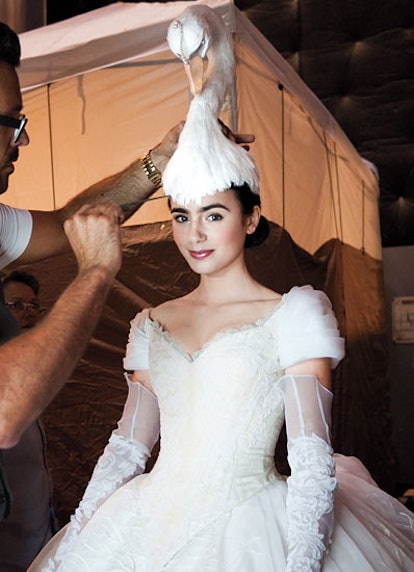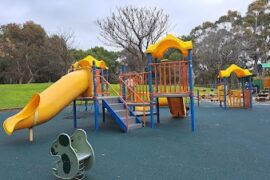Understanding the Mirror Stage: A Comprehensive Guide for Parents
Welcome, lovely parents! Are you intrigued by how your little bundle of joy discovers their own reflection and begins to recognize themselves? You’ve probably witnessed the magical moment when your child first looks in a mirror and becomes fascinated by the image staring back. This pivotal stage in a child’s development is known as the mirror stage, and it’s an enchanting time filled with growth, learning, and adorable expressions.
In this comprehensive guide, we’ll explore the whimsical world of the mirror stage, unraveling its mysteries and providing you with valuable insights into your child’s developmental journey. So, let’s embark on this reflective adventure together and learn more about the mirror stage and how it shapes your child’s self-awareness and cognitive growth.
What is the Mirror Stage?
The mirror stage is a concept initially introduced by French psychoanalyst Jacques Lacan. It’s described as the phase in a child’s development, typically between 6 to 18 months, where they begin to recognize themselves in the mirror. This is a significant milestone because it marks the beginning of self-recognition and the construction of the ‘I’ or ego.
Why is the Mirror Stage Important?
The ability to identify oneself is crucial in the realm of child development. The mirror stage fosters a growing sense of independence and the understanding that one is a separate entity from others. This newfound awareness directly impacts emotional development, social interactions, and even language acquisition. Let’s discover why:
- Confidence and Independence: As children recognize their capabilities, they gain confidence and motivation to explore and learn new skills independently.
- Social Skills: Understanding the concept of ‘me’ and ‘you’ allows children to develop empathy and the ability to differentiate between themselves and others, which are foundational for building social relationships.
- Language and Communication: With the emergence of self-awareness, children can better comprehend personal pronouns and communicate their needs and desires more effectively.
Now that we’ve delved into the heart of the mirror stage, are you ready to foster and support this crucial period in your little one’s life? In the following sections, we’ll cover practical tips on how you, as a nurturing parent, can encourage your child’s self-discovery journey and make the most of this enchanting developmental phase.
Activities to Support the Mirror Stage
Children are naturally drawn to mirrors, and you can use this interest to engage them in activities that bolster their self-awareness. Here are some delightful and simple activities to try with your child during the mirror stage:
- Make Silly Faces: Sit with your child in front of a mirror and make funny faces together. Laugh and talk about the expressions you’re making. This not only reinforces the recognition of themselves but also the concept of emotions and social cues.
- Play Peek-a-Boo: Use a handheld mirror to play peek-a-boo. This activity can help consolidate the understanding that even when they can’t see themselves, they still exist – an early grasp of object permanence.
- Name Body Parts: Point to and name different body parts while looking in the mirror with your child. This enhances vocabulary and body awareness.
As our journey through the looking glass continues, remember that each child is unique, and the mirror stage can vary widely in how it’s experienced. Some children may show signs earlier or later than others, and that’s perfectly fine. What’s crucial is providing a loving and supportive environment for them to explore and understand themselves.
Stay tuned for more in-depth advice on nurturing your child through the mirror stage and beyond, as we will delve deeper into strategies, questions parents frequently ask, and the fascinating connection between mirror self-recognition and future developmental milestones. After all, every little reflection is a step towards your child becoming a wonderfully self-aware individual!
Let’s cherish these delightful moments of growth together, and remember, parenthood is a beautiful work in progress, much like the radiant blossoming of your child’s self-concept in the mirror. Keep shining and supporting each other through this beautiful mirror mirror on the wall stage!

5 Things Parents Should Know in Preparing for the Mirror Stage
As you marvel at your child’s development, being prepared for the mirror stage can make this transition smoother and more enriching for both of you. Here are five key points to keep in mind:
- It’s About More Than Just Mirrors: While the mirror stage involves mirrors, it’s really about children developing self-awareness. Be ready to support your child by celebrating their identity and autonomy in various situations, not just in front of the mirror.
- Timing Varies: Children enter the mirror stage at their own pace. Some may show interest in their reflection earlier than others. It’s essential to watch for signs of self-recognition and respond with encouragement regardless of the exact timing.
- Emotional Support is Key: As children learn about themselves, they may also experience a range of emotions. Provide plenty of love, comfort, and reassurance as they navigate through this self-discovery process.
- Use Everyday Opportunities: Everyday activities can be turned into learning experiences. Dressing, bathing, or playing with toys can all be opportunities for children to learn about themselves and their bodies.
- Engage in Interactive Play: Engage with your child while they’re exploring their reflection. Interactive play not only enhances bonding but also aids in developing communication skills and emotional understanding.
As you guide your little one along this shiny path of self-discovery, keep these tips in your parenting toolkit and remember to enjoy every moment. The mirror stage is a magical time of growth, enchantment, and connection, and it’s one of the many exciting milestones you’ll share with your child.
By being observant, supportive, and interactive, you’re not just helping your child recognize the person in the mirror—you’re also shaping the foundation of their self-esteem and social identity. Now let’s take a look at how you can apply these insights with some everyday strategies to support your child through the mirror stage.
Everyday Strategies for Nurturing Self-Awareness
Enhancing your child’s self-awareness is a gentle process that can be woven into your daily routine. Here are some practical strategies to consider:
- Consistent Routine: Establish a predictable routine that includes time for your child to play and explore independently in a safe environment.
- Reflective Conversation: Engage in conversations with your child as if they understand everything you say. Use reflective language to describe what you see them doing in the mirror: “Look, you’re smiling!” or “You found your nose!”
- Modeling Behavior: Be a role model when it comes to showing self-love and care. Speak positively about yourself and others to create a healthy environment for self-esteem.
- Diverse Experiences: Give your child opportunities to interact with different people and environments to enhance their understanding of self in relation to the world around them.
- Encourage Curiosity: Celebrate your child’s questions and curiosity. Provide answers that are age-appropriate and encourage them to keep exploring and learning.
Supporting your child through the mirror stage can be a joyful and insightful experience. Your loving guidance is key to their healthy development. So, go ahead and fill your days with smiles, giggles, and endearing conversations by the mirror. Each reflection is not just a mirror image—but a step into the amazing journey of growth and self-discovery.
Remember, helping your child understand themselves is a gift that keeps on giving—leading to a lifetime of confidence, resilience, and the joy of being truly seen. Embrace this precious time, for these are the days when the simple act of looking in the mirror can spark a world of wonder for your little one.
. For more information see here
Disclaimer
The articles available via our website provide general information only and we strongly urge readers to exercise caution and conduct their own thorough research and fact-checking. The information presented should not be taken as absolute truth, and, to the maximum extent permitted by law, we will not be held liable for any inaccuracies or errors in the content. It is essential for individuals to independently verify and validate the information before making any decisions or taking any actions based on the articles.




